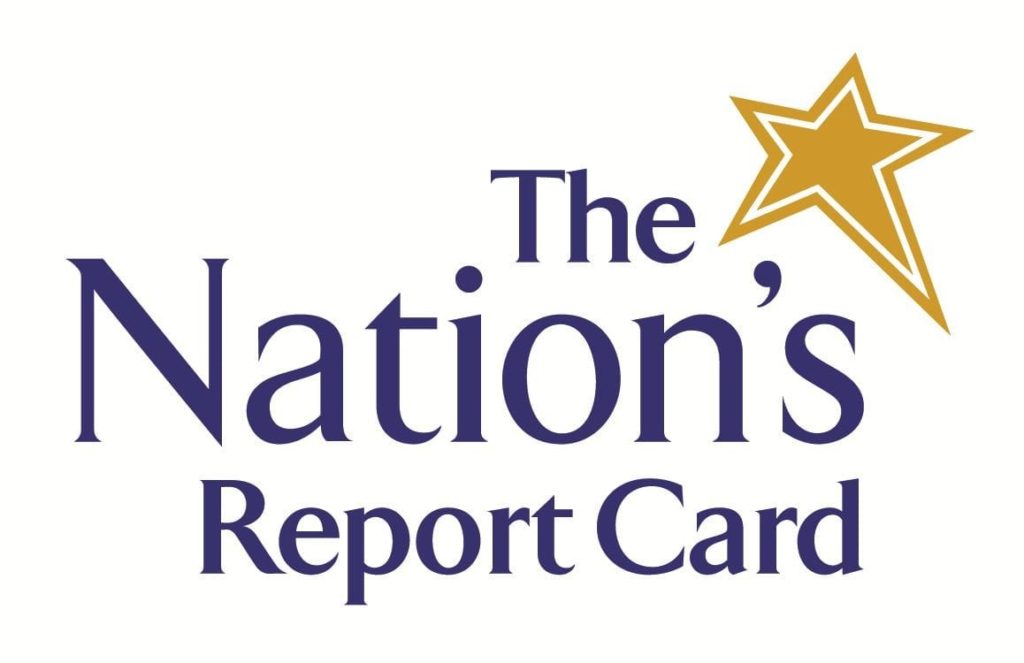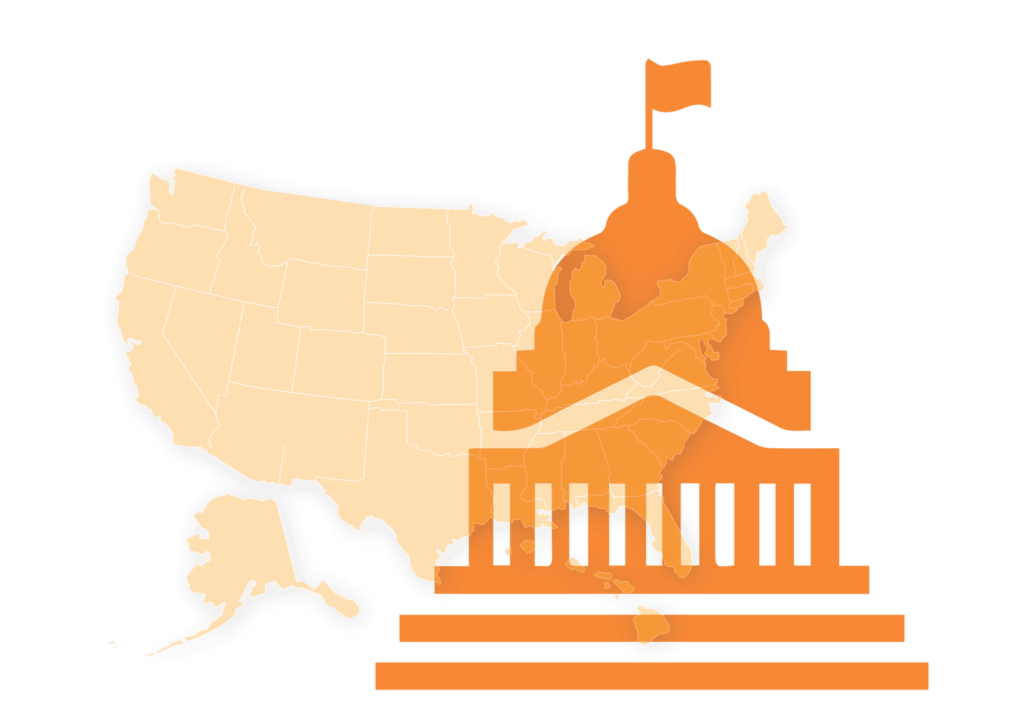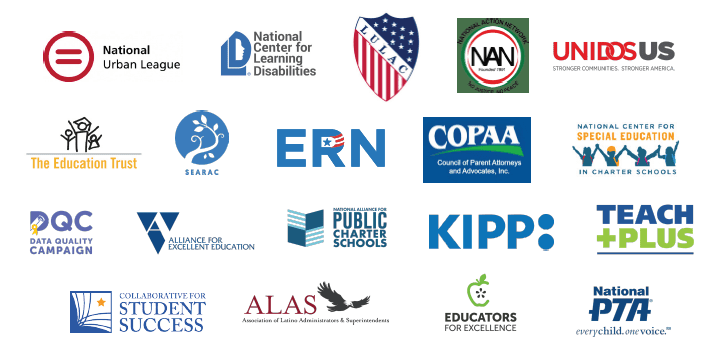Dear Secretary Cardona,
We, the undersigned, believe wholeheartedly that education data and student assessment can and should play a role in equitably driving improved opportunities and outcomes for all students. Now more than ever, as the nation emerges from the COVID-19 pandemic and billions of dollars of federal relief funds flow to states, resource allocation and strategic interventions should be targeted on the basis of need and tailored to specific student populations based on evidence identified in data.
The pandemic wreaked havoc on assessment systems. No states have achievement data for the 2019-2020 school year, and despite the best efforts of many educators and district and state leaders, data from the 2020- 2021 school year will not be as robust or comprehensive as prior to the pandemic. This systemic disruption, however, pales in comparison to the individual impact on students — so many of whom have struggled academically, socially, and emotionally over the past year. This is particularly true for our most underserved students, who already faced inadequate and inequitable access to resources and opportunities and face the same situation when they return to school. There is no question that students who are marginalized have been disproportionately impacted. Our fear is that the loss of equity guardrails provided by transparent student testing data may result in a return to the days when inequitable outcomes for students of color, English learners, students with disabilities, and students from low-income backgrounds were easily swept under the rug.
Even though it is evident that schools will not be returning to “normal,” but rather a “new normal,” there is uncertainty and a lack of strong evidence about the best way to adjust testing and accountability systems to meet this new reality. At a time when we need quality data the most, we do not have it; and worse, there is an aversion to collecting data for all students, despite the U.S. Department of Education’s requirement that testing resume.
The education community has heard the calls to end summative assessments, and these calls have intensified during the disruptions caused by the pandemic. We recognize that assessments should be improved to address shortcomings, including to become more culturally relevant and inclusive and to deliver more easily usable information; but it would be short-sighted and come with devastating consequences to no longer have quality, comparable measurements of student achievement to help us understand student recovery in the years ahead. While we believe that many of the attacks levied against assessments are exaggerated, we also know that work remains to be done in ensuring tests adequately inform communities in an accessible and equitable way.
It is time for all parties to come together and look forward. Student success is of paramount concern to all of us. Our students, educators, and families deserve a thoughtful conversation about assessment policy and practice, and how we can surface better, more useful testing tools across our education system. We believe that there is broad agreement on the value that data should have in supporting the ultimate goal of student success. Both proponents and opponents of our current testing system want educational assessments that can better guide decision-making and better inform classroom instruction and student progress.
Additionally, we believe an opportunity exists to surface and expand efforts to innovate in the assessment and accountability space, with the goal of making tests less burdensome and more useful to educators and families alike. States have already demonstrated an ability and desire to innovate in the field of testing. For example, Georgia, Louisiana, Massachusetts, Nebraska, New Hampshire, North Carolina, Tennessee, and Texas are pursuing innovative approaches to assessment through the Innovative Assessment Demonstration Authority (IADA) program or other means. These innovations should be studied closely and, where warranted, built upon. Additional innovations also must be encouraged, with an eye towards preserving equity. Attached to this document are a series of recommendations we believe should guide any discussions around the “future of assessments,” including assessment principles and the stakeholders who should be involved in any discussions regarding changing Federal assessment policy.
It is more important than ever to collect valid, reliable, comparable, statewide data on student achievement and use that information to help improve low-performing schools and close achievement gaps exacerbated by the pandemic. Now is not the time to open up the Every Student Succeeds Act (ESSA) to rethink the strong assessment requirements of the law. However, we acknowledge a desire from diverse stakeholders across the country to consider new types of assessment systems and designs. While these discussions get underway and new ideas emerge, the Department of Education (the Department) needs to remain steadfast in enforcing the requirements of ESSA.
States are coming off two school years of education turmoil in which our districts and states do not have complete assessment data for many of their students. For parents, families, and the communities our collective organizations serve, assessment data aligned to state-adopted standards shows how well schools are serving all students, while holding students to high expectations and preparing them for postsecondary education and the workforce. Therefore, we firmly believe the time for waivers of assessment from ESSA requirements is over.
To that end, we ask the Department to share its plans for resumption of the State assessment and school improvement requirements under ESSA for the 2021–2022 school year and detail how it will provide oversight of and hold States and school districts accountable for the requirements of ESSA, including the reporting of the data they did collect last year. Please describe your plan to ensure States are continuing to administer high-quality assessments that are used in State accountability systems to identify schools in need of support.
Lastly, we expect that any discussions the Department has around the future of assessment, or any assessment policy changes will be transparent and structured in a manner that ensures ideas are surfaced and thoughtfully considered by a diverse group of education stakeholders (including those listed in the attachment).
As always, we appreciate the commitment that you and the Department of Education have shown to helping America’s students. We stand ready to support you on this important issue and welcome your response to our questions and further dialogue on these important issues.
Signed,
50CAN
Center for American Progress (CAP)
Chiefs for Change
Collaborative for Student Success
Data Quality Campaign (DQC)
Education Reform Now
The Education Trust
National Alliance for Public Charter Schools
National Center for Learning Disabilities (NCLD)
National Parents Union
National Urban League (NUL)
NMKidsCAN
Teach Plus
UnidosUS
U.S. Chamber of Commerce Foundation

 August 19, 2021 by
August 19, 2021 by 






